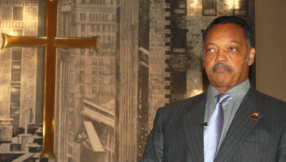
The U.S. Supreme Court has agreed to review a case that where a church in Missouri was barred from getting state fund to have a safe children's playground on the contention that it is a religious organisation.
It will decide in March or April on whether churches' constitutional rights are violated when a state excludes them from state programmes.
The case stemmed from Missouri state's denial of Trinity Lutheran Church of Columbia's application to replace its playground's gravel with a recycled rubber surface, according to CBN.
Its application was denied under the 2012 Playground Scrap Tire Surface Material Grant Program by the Missouri Natural Resources Department despite the fact that it ranked fifth out of 44 applications. The department argued that the state's constitution prohibits government funding for religious institutions.
"No money shall ever be taken from the public treasury, directly or indirectly, in aid of any church, sect, or denomination of religion," the department's letter stated, according to the Washington Post.
The church lost its case at the 8th Circuit Court of Appeals.
The Alliance for Defending Freedom (ADF) subsequently brought the case to the Supreme Court
"Trinity does not seek funding for an essentially religious endeavour where the state's anti-establishment concerns may be heightened," the church said in its petition to the High Court.
It added that "Trinity seeks a grant for a rubber pour-in-place playground surface where its children and those from the community play. Seeking to protect children from harm while they play tag and go down the slide is about as far from an 'essentially religious endeavour' as one can get."
ADF Senior Counsel Erik Stanley said, "This case has huge implications for state constitutional provisions across the nation that treat religious Americans and organisations as inferiors solely because of their religious identity."
Missouri said its actions did not raise the kind of issues that court needed to settle.
It is "not whether a state can exclude churches and other religious institutions from a program that otherwise provides benefits to everyone," wrote Missouri Attorney General Chris Koster. "Rather, it is whether states are required by the U.S. Constitution to violate their own constitutions and choose a church to receive a grant when that means turning down non-church applicants."













